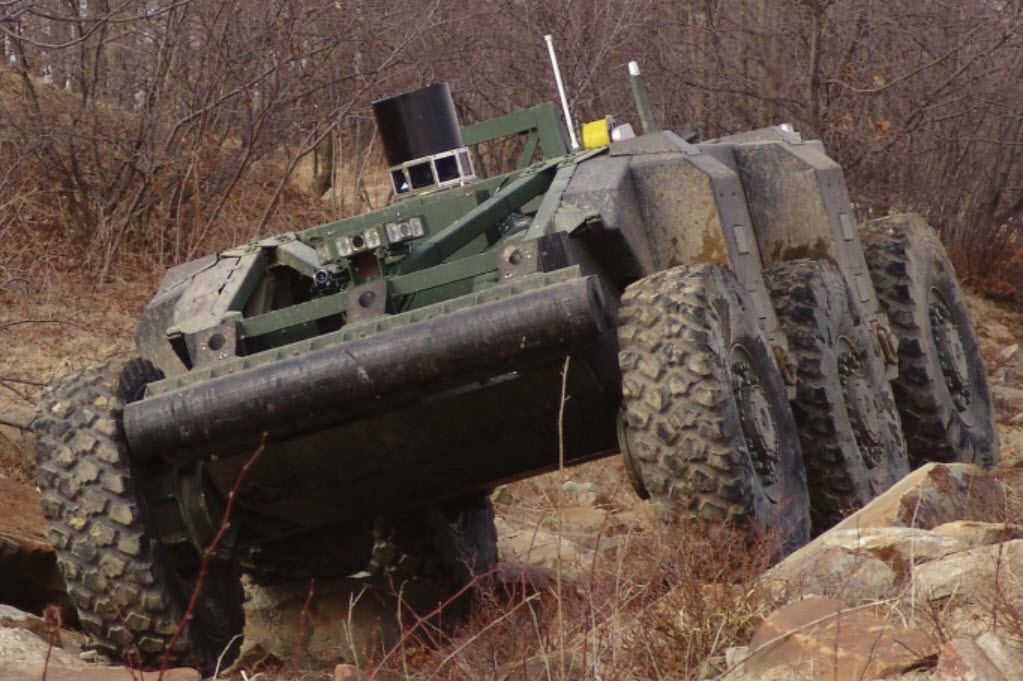Robotics experts to debate ‘killer robots’ policies at UN
May 13, 2014

Crusher unmanned ground combat vehicle (credit: National Robotics Engineering Center of Carnegie Mellon University)
A leading robotics expert, Professor Noel Sharkey from the University of Sheffield’s Department of Computer Science, will speak to the United Nations in Geneva from May 13–16 to help global leaders understand the pros and cons of lethal autonomous weapons systems.
Sharkey is holding a debate with Professor Ronald Arkin from the Georgia Institute of Technology at the UN’s Convention of Certain Conventional Weapons (CCW) in Geneva to explore the growing global concern over the dangers of “killer robots.”
During recent years, a number of leading robotics experts, international aid agencies, and governments have become increasingly concerned about the dangers posed by lethal autonomous weapons systems amid the growing technological advances being made in the field.
As a result of these concerns, an international campaign has started to stop the development of “killer robots” that can be used to identify and attack a target without human intervention. “We are a group of concerned academics who have been pushing for international discussion on this issue for the last five years,” said Sharkey.
“We launched a campaign from the House of Commons last year calling for a new international treaty to be developed to prohibit these weapons systems. Although fully autonomous weapons are not in operation yet, a number of states are well underway in research, development and testing of related technologies. Weapons with greater levels of autonomy are already starting to be put in action.
“If we do not put an end to this trend for automating warfare now, we could face a very bleak future where machines are delegated with the decision to kill humans. This is perhaps the ultimate human indignity and crosses a fundamental moral line which needs to be considered and addressed.”
The experts will discuss technical, ethical, legal and military/operational issues around autonomous weapons systems. A decision on next steps will be taken at the annual meeting of the Convention on Conventional Weapons at the UN in November 2014.